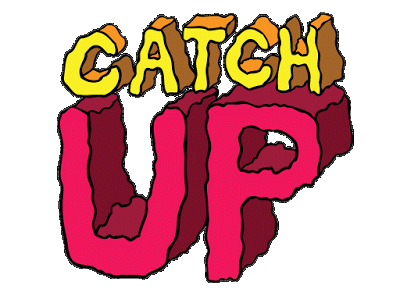Anyway, without further ado, here's what you might just have missed last week:
Solicited by David and hosted by Darren, Katfriend Donal Kelly pens his pensées on the new Irish Intellectual Property (Miscellaneous Provisions) Bill 2014. Among other things, the Bill seeks to amend the Irish Patents Act by providing legal certainty in relation to Bolar-type exemptions, and this is what this post is pretty much about. Recalling an earlier post of his, Darren wonders how UPCA-enacting legislation may trump Bolar-wise national provisions.Copyright Kat Eleonora gives us a tremendously useful recap of all the copyright cases pending before the Court of Justice of the European Union (‘CJEU’). Among them, what would be the one to look forward to the most after the summer break? Eleonora has no doubts: "it’s Case C-419/13 Art & Allposters!”, she replies, a case which touches pretty much all the hottest copyright topics, from exhaustion to the right of adaptation. The CJEU’s ruling is on its way, and there’s nothing better than this post if you want to get ready for it.On 21 October 2013 the IPKat published here a guest post under the title “The new Community trade mark top-up: a call for debate”, in which Richard Ashmead called for a debate on the European Commission’s proposal in Article 28(8) of its draft Community Trade Mark Regulation (CTMR), providing for CTM class heading registrants to request a top-up of their list of goods beyond the literal meaning of their class heading wordings. Now Richard pops up with this top-up post to bring readers up-to-date upon the state of the new directive negotiations on Nice classification and the latest version of the EU IP trade mark system.Last December the IPKat reported on Case C-535/13 Honda Giken Kogyo Kabushiki Kaisha v Maria Patmanidi SA, a request by the Greek Monomeles Protodikeio Athinon for a preliminary ruling concerning international exhaustion under the General Agreement on Tariffs and Trade (GATT), TRIPS, and competition law under Articles 101 and 102 of the Treaty on the Functioning of the European Union (TFEU). In this post, Jeremy leaves the floor to Katfriend and Greek attorney Maria Kilimiris (Patronos & Kilimiris, Athens), who tells readers about the reasoned order that the CJEU issued on 17 July in the very same case, giving its take on the relation between trade mark exhaustion and freedom of competition under the international agreements mentioned above.In 2008, Laura Matthews changed her name for a new one with “Skywalker” as her new middle name. When she applied to renew her passport, though, the UK Passport Office said they could not accept her application because ‘Skywalker’ was a registered trade mark and could form part of her passport signature. Rebecca reports this rather unreal story and this blogger is not enough a fan of Star Wars to close this sentence with a funny joke about “the force”, the Jedi or whatever.The regular guestpost contributor Suleman Ali, of boutique practice Holly IP, lets drop another of his highly readable posts, this time on the Discussion Document: the Publication of Patent Applications that the United Kingdom Intellectual Property Office has recently published with the purpose to ask for feedback on specific ideas it has had for changing the way patent applications are published. Like Suleman’s earlier ones, it is another worth-reading piece which attracted an impressive number of comments.Rebecca reports on Manuel Noriega, the former dictator of Panama, complaining about a character of the notorious videogame Call of Duty bearing his name and likeness. Noriega said that the game portrayed him as a kidnapper, murderer and enemy of the state, and that it had damaged his reputation. What a shame!Eleonora provides food for thought on relation between copyright and football games, investigating whether and how one can claim exclusive rights on videos and gifs reproducing goals -- this latter practice became popular during the recent World Cup. Is there copyright in an extract from a football match? And, if so, would the “news reporting” exception apply? Here’s what the copyright Kat thinks.After wondering in his previous post whether the “lean start-up” approach to entrepreneurship might be a disincentive to inventive activity of the patent kind, Neil wonders whether emerging structures for creating more effective training environments for start-ups and their founders affect the traditional role that trade secrets play in the process of creation and innovation. This is a rather Freudian issue, Neil explains, as it goes at the heart of the relation between the start-ups’ mentors, the accelerator, and the knowledge heritage of the start-ups themselves.Three urban artists have just brought copyright infringement suit in the Northern District Court of Illinois against movie director Terry Gilliam of Monty Python fame. The artists claim that Gilliam reproduced without permission their copyright work Castillo (Castle), a mural they collectively painted in 2010, in his movie The Zero Theorem, which will be released in the U.S. next month. Marie-Andrée reports the full story.Last year Angelina Jolie faced a copyright infringement action for the film In The Land Of Blood And Honey, which she directed. James Braddock, a Croatian author and journalist, claimed copyright infringement on his work The Soul Shattering. In March 2013, the US District Court of California ruled that there was no copyright infringement. That might not be the last word of this tale, Rebecca reports.
 Reviewed by Jeremy
on
Monday, August 18, 2014
Rating:
Reviewed by Jeremy
on
Monday, August 18, 2014
Rating:




![[Guest post] Can AI be considered a PHOSITA? Policy debates in the US and the EU](https://blogger.googleusercontent.com/img/b/R29vZ2xl/AVvXsEggxDO6mW5r4n3-06Af5ckmIaMIhzgPJBoDP8AUsSYXY2zajUQt1ObGVn_GhCgidbG_YDVnybQuJ5XoAjjBG9Ws2xJWDQHNPMrLkn526SWIG371X_Kjt1E8tJmn8Ae_20Phyphenhyphen09JeuUOhhTR3aZE9lMRQlqHGQGcAWGxlo91rrKcLk0AfUjWCvw6RQ/s72-c/Two-cats-eating.jpg)












Dear Alberto
ReplyDeleteOn your reluctance to end with a funny joke on the Skywalker story: this is your opportunity to create a distinct genre of Star Wars IP humour. Your writing certainly has a Obi-Wan Kenobi sort of resonance, with a Jedi Master style knowledge of all areas of IP.
Your summaries are very useful. I just need a summary of your summary now, so I can absorb it all in 30 seconds.